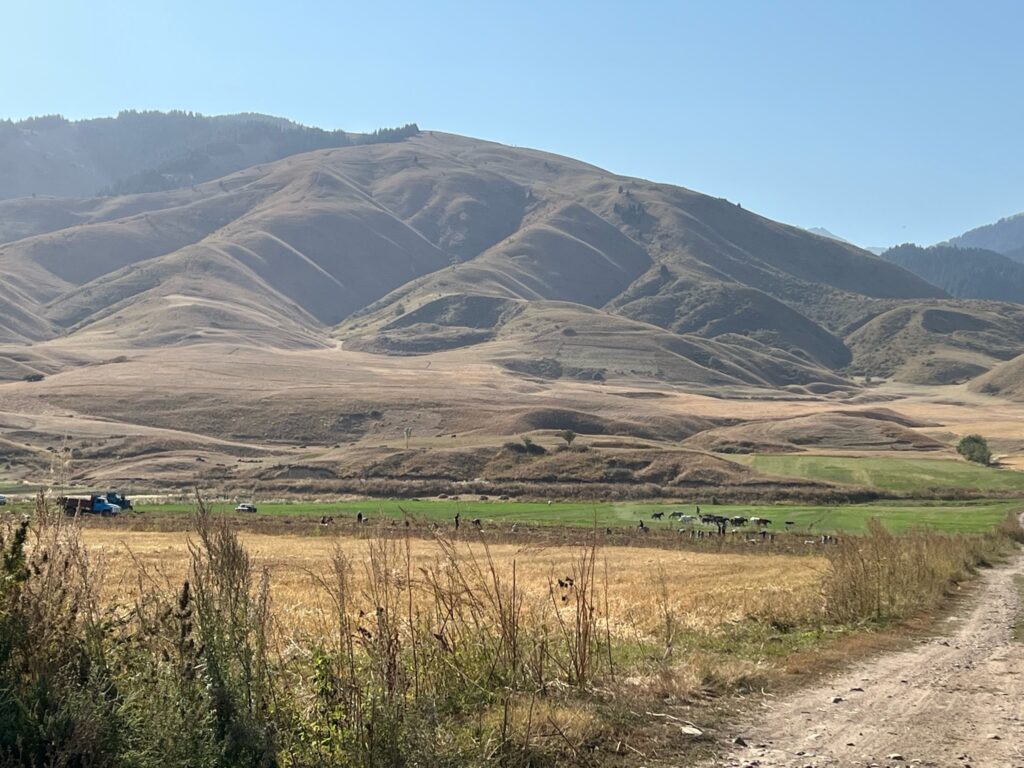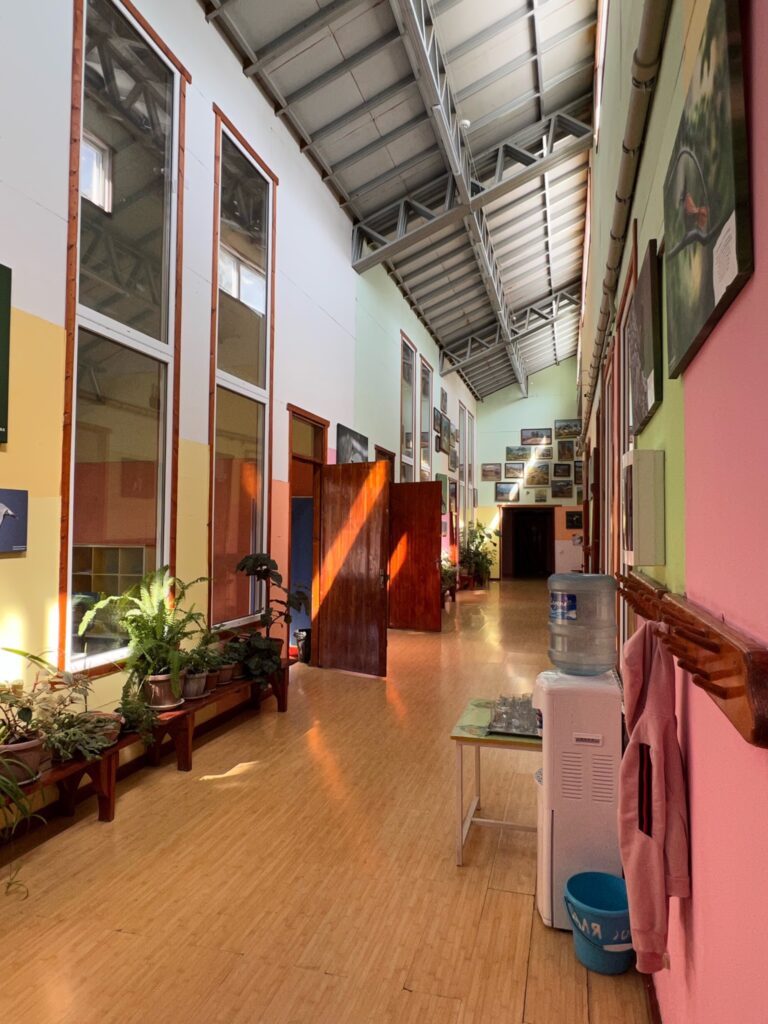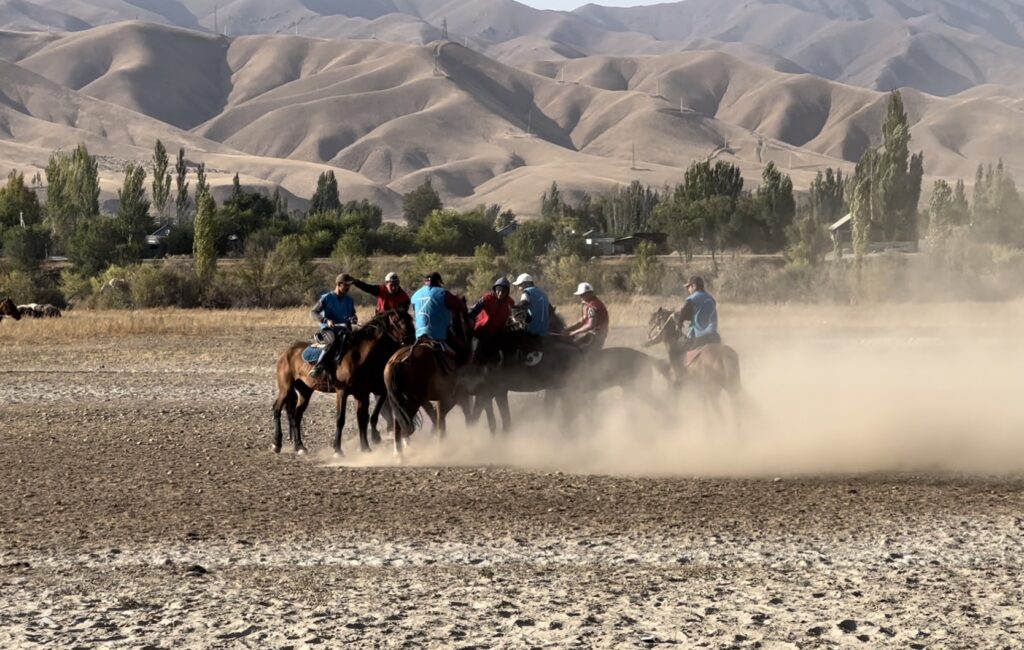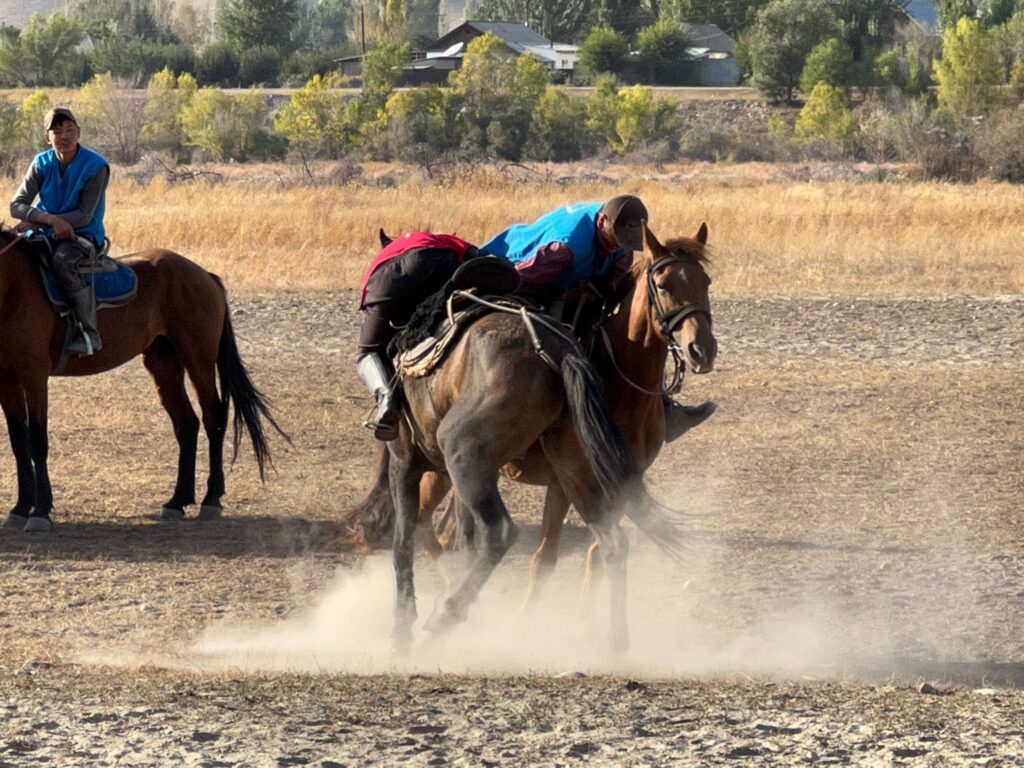17 September 2022
The day begins with a large, delicious breakfast including flaky pastries, potato pancakes filled with cheese, honey and raspberry spreads, bread, quiche and more – homemade and from their gardens. I’m not a breakfast person but one has to indulge here. As for coffee, well, let’s say there is room for improvement. Roger, our supreme leader and caregiver, buys us cream to replace the fermented mare’s milk.
Kolmakov Aashu used to be a collective farm during Soviet times. We learn about life under the Moscow bosses as we walk through the village. Life was hard and difficult adjustments were required after the independence in 1991. State owned property had to be dolled out to approximately 1000 new private citizens. Villagers worked with what they had, struggled, survived, and ultimately began to thrive.

Life appears bucolic as horses and cows graze beneath high mountain ranges. Many villagers are in the fields as this is the time for the digging of potatoes, a principle cash crop here. Everywhere there are bright orange bags of potatoes. A man is mixing gravel and cement as there is always some building and improvements in progress as extra cash might allow. It is Saturday so children are out of school; reactions are unexpected as the youngest are frightened by these strange people walking past their gated yards. Dogs are interested but polite. Homes are small, neat, many with outside squat toilets. We pass long, low storage buildings once used for community animals and produce, all owed by the state and now falling into disrepair. This is a simple, hard-scrapple life.
Hiking around the valley is pleasant. The scenery, air and terrain are lovely. (Though the dry air and ever present dust is irritating to sinuses.) This is a popular spot for travelers who come for hiking and camping and the growing business of guest houses and yurts are signaling change. I would not enjoy a winter here but warmer weather is lovely.

After lunch, always more food than we can eat, we are picked up by the school bus and taken to a private school. This school and 14 others around the valley were funded by the owner of the guest house where we lodge. (The state will not allow us to visit a public school. The uniformed boy I met in the village yesterday is from the public school .) Children apply and pay about $800 yearly tuition, classes consist of all grades, and rooms are large and constructed to be bright and airy. Facilities include gym, computer room, large classrooms, and colorful art and posters adorn every wall. There is also a dormitory for about 30 students who board Monday thru Friday because of distance from home. Teachers and students enjoy small classes of 10-15 and study a variety of subjects including English 3 times a week. This is a very nice environment for learning.
The afternoon found us boarding a horse cart and riding to the local “polo field.” There we watch a Buzkashi game, or what one calls a totally riotous equestrian game of “goat pulling.” The Kyrgyz have a long tradition as horsemen and everyone probably has a goat. The goal is for opposing teams of horsemen to ride as fast and forcefully as possible in order place a goat carcass in the goal. The woolly goat, always a male and weighing around 60 lbs, thankfully is dead, decapitated of head and feet. The melee of man and horses is serious business.

The sport is not unlike Australian Rules Football but with horses. The goat is thrown to the ground and riders charge to get the goat. The scrum for the goat may last a few minutes before one rider manages to grab a leg and ride as fast as possible for the goal at the end of the field with the other riders in hot pursuit. There are rules but the main one is get the goat, stop the other guy, stay on your horse. We watched a game with 4 men per team with two observers (and wandering dog as mascot); usual games consists of 12 per team. Winning team gets the now tenderized goat and takes it home for the women to bbq for a team dinner.

It makes polo players look like wusses. This contest of horse riding, strength and skill is called different names in individual countries, like Kokpar in Kazakhstan who is currently the Eurasian champs, but the rules are the same: get the goat!
This is also a country where ala kachuu, bride kidnapping, is practiced. Though illegal, some locals still practice arranged marriages. It may all be in fun with consensual kidnapping. Either way, I think their divorce rate is pretty low. Also, I promised my nephew that I would ensure that his beautiful daughter would not be a kidnappee.
On almost every tour of this sort, there is always a “bootlegger” somewhere. When the local Seven-11 is not close, one has to make do. Here, in the middle of Muslim Kyrgyzstan, it is no different. Tonight, our dinner includes traditional vodka tasting. This usually is distilled out back using the grains, potatoes, and spirits available. And this country has an abundance of potatoes! The alcohol is typically strong and could remove paint from walls. I don’t like firewater, white lightning, rotgut or whatever name you want to give it no matter where it is brewed. But after an afternoon of goat pulling, the Vodka tastes pretty good.
0 Comments